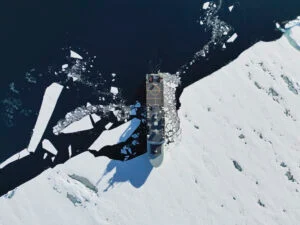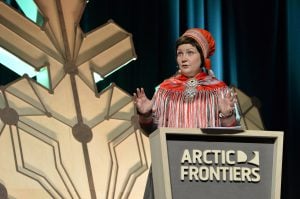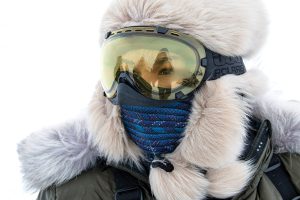
People & Culture
On thin ice: Who “owns” the Arctic?
As the climate heats up, so do talks over land ownership in the Arctic. What does Canadian Arctic Sovereignty look like as the ice melts?
- 4353 words
- 18 minutes
This article is over 5 years old and may contain outdated information.
People & Culture

The Arctic may seem far away to most Canadians, but a new interactive web documentary brings the importance of Arctic research closer to home.
Profiles from the Arctic features 40 scientists, students and staff who worked at the Polar Continental Shelf Program last summer. The web series, which is in collaboration with the Canadian Polar Commission, allows viewers to choose the audio clips and videos they want to view.
The first profiles go live on Mar. 31, with two profiles examining how noise affects the feeding patterns of whales and how disturbances affect Arctic cod populations. Other profiles, which will be added over the next few months, will include scientists studying glaciers, sharks, meteor impacts, narwhals and permafrost.

The web series reveals what research is happening in Canada’s Arctic right now.
“There’s a lack of knowledge about the Arctic in general,” says Katriina O’Kane, a multimedia documentary maker who worked extensively on the series. “It’s a very romanticized place in a lot of people’s minds and they don’t necessarily understand what the current conditions are like. It’s not on people’s radar.”
O’Kane flew up to Resolute Bay, Nunavut last summer and spent two-and-a-half weeks interviewing and filming the scientists at The Polar Continental Shelf Program’s Arctic Logistics Support Centre.
“This series shows what it is really like to be a scientist up in the Arctic,” O’Kane says. “This really goes into the specifics of what it is that scientists do, what kind of lives they live and why they’re doing what they’re doing.”
O’Kane is hoping the series will help Canadians better appreciate the Arctic and the research taking place there.
“Right now is really a crucial moment,” she says, noting that the Arctic is warming and there’s interest in developing resources and shipping in the area. “To be able to know how to develop the Arctic in a sustainable way, we need to know how the environment reacts to certain things. At the moment, that knowledge isn’t there, but it can be developed with the help of research.”<
Listen to an audio clip on how noise affects whales, taken from an interview with Caitlin O’Neill, who is studying mammal migrations.
Are you passionate about Canadian geography?
You can support Canadian Geographic in 3 ways:

People & Culture
As the climate heats up, so do talks over land ownership in the Arctic. What does Canadian Arctic Sovereignty look like as the ice melts?

Environment
The uncertainty and change that's currently disrupting the region dominated the annual meeting's agenda

Science & Tech
The Canadian High Arctic Research Station is set to open in Cambridge Bay, Nunavut, later this year. How will it affect our understanding and appreciation of the North and the rapid change occurring there?

People & Culture
The story of how a critically endangered Indigenous language can be saved